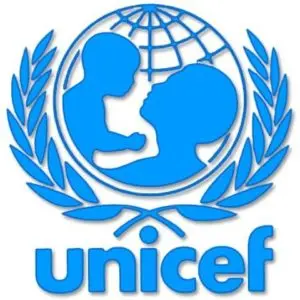The United Nations Children’s Fund has been delivering more than 30,000 litres of water daily to victims of the Yelwata attack currently sheltered at the International Market camp in Makurdi, Benue State.
The initiative aims to address urgent water and sanitation needs for over 3,400 displaced persons.
UNICEF’s Water, Sanitation and Hygiene Specialist at the Enugu Field Office, Mrs. Rebecca Bolatito-Gabriel, disclosed these interventions during a visit to the camp on Monday.
Bolatito-Gabriel explained that UNICEF’s water provision ensures each displaced person receives at least 15 litres of water per day, meeting international emergency standards. The organization has installed two water bladders with a combined capacity of 10,000 litres while also rehabilitating abandoned boreholes at the site.
“We are providing over 30,000 litres of water daily to the IDPs in the camp. We have over 3,400 IDPs in this camp so far, according to the International Organisation for Migration database,” she stated.
The WASH specialist emphasized that adequate water supply was crucial to making existing sanitation facilities functional: “We discovered that there were sanitation facilities like toilets, which are not accessible and cannot be maintained without water. It’s not also the kind of toilet they are used to where they are coming from. So, to make the facilities useful, hygienic and safe, water must be provided.”
To improve environmental conditions, UNICEF has trained and deployed 50 hygiene promoters from among the displaced population to educate camp residents on proper sanitation practices.
The Health Specialist at UNICEF’s Enugu Field Office, Dr. Ifeyinwa Anyanyo, reported that the agency has provided medical care to 910 individuals at the camp, including four safe deliveries conducted on-site.
“We are currently offering an integrated package of primary healthcare and antenatal services at the camp,” Anyanyo said, highlighting the organization’s comprehensive approach to addressing both immediate and ongoing health needs of the displaced population.
The humanitarian response comes as Benue State continues to grapple with displacement crises caused by recurring violence. UNICEF’s interventions focus on preventing disease outbreaks through improved WASH services while ensuring access to essential healthcare for vulnerable groups, particularly women and children.
The International Market camp represents one of several temporary settlements hosting persons displaced by recent attacks in Nigeria’s Middle Belt region, where clashes between farmers and herders have created chronic humanitarian challenges.







